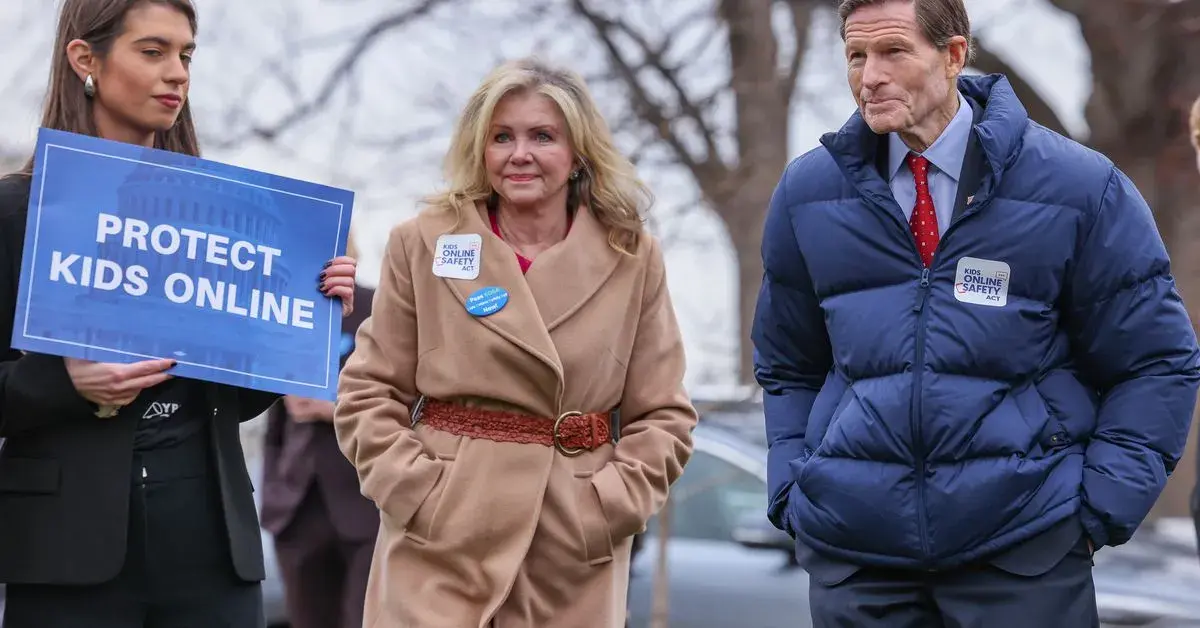The US’s latest attempt to chill speech online, KOSA-a bill to effectively force everyone to identify themselves to online platforms-is picking up steam and looking like it will pass the Senate.

This sums it up in one simple picture, in Canada add the, this will hurt somebody’s feelings paper… Thought police…
I’m really tired of politicians who barely understand the internet trying to write sweeping legislation to regulate it.
inb4 Americans use VPN connections to HongKong to get around US censorship laws…
I think VPN to Belize or Cuba will become a new standard…
I don’t think a Cuban VPN exists. If it does, it’s definitely government-run. They don’t let the internet in (except on designated monitored computers priced so the local’s can’t access them much) and instead have their own intranet.
Story time: something like 30 years ago, someone sent me an email asking a technical question about a thing I posted online. We exchanged a couple educated emails, and they thanked me for the explanation. Then it hit me: …who TF has email on Cuba …whom was I talking to?
Nowadays they have Internet access for tourists, but 30 years ago… yeah, that.
Lol, so what sort of thing was Fidel tinkering with and asking for help with?
It was something technical, web hosting related I think. I’d have to dig up some old backups, if it’s even still there… maybe someday. I remember thinking it must’ve been someone working for the government.
Figure out which politicians are behind this.
And throw them out,
since they are trying to take away your rights (to privacy).They are looking to apply mass surveillance upon you guys wrapped into a “For the kids safety” package as usual…
Let me guess, it’s something to do with ending encryption and privacy … for the children?
I didn’t see anything in the article about “effectively forcing everyone to identify themselves to online platforms,” care to elaborate?
That part has (maybe-ish?) changed with these most recent amendments. Per the EFF:
The Bill’s Knowledge Standard Has Changed
The first change to the bill is that the knowledge standard has been tightened, so that websites and apps can only be held liable if they actually know there’s a young person using their service. The previous version of the bill regulated any online platform that was used by minors, or was “reasonably likely to be used” by a minor.
The previous version applied to a huge swath of the internet, since the view of what sites are “reasonably likely to be used” by a minor would be up to attorney generals. Other than sites that took big steps, like requiring age verification, almost any site could be “reasonably likely” to be used by a minor.
So in a best-case interpretation under the new text, a site whose ToS does not allow minors to use it would not be required to check everyone’s ages to verify no one is a minor, in order not to be liable if a minor accessed adult content on it. The problem is, the bill isn’t actually explicit about what qualifies as the site having knowledge of children using it means:
Requiring actual knowledge of minors is an improvement, but the protective effect is small. A site that was told, for instance, that a certain proportion of its users were minors—even if those minors were lying to get access—could be sued by the state. The site might be held liable even if there was one minor user they knew about, perhaps one they’d repeatedly kicked off.
The bill still effectively regulates the entire internet that isn’t age-gated. KOSA is fundamentally a censorship bill, so we’re concerned about its effects on any website or service—whether they’re meant to serve solely adults, solely kids, or both.
No site is going to want to be the ones that an AG tests out their new lawsuit hammer on, so it’s likely to end in 1 of 2 ways: either verifying the ages of all users of the platform, or prohibiting all user-generated content to prevent adult content being posted. Republicans are fine with either of those outcomes. The sad thing is the Democrats who either also are, or who don’t understand the impacts but are voting on it anyways.
So pissed at my democrats, and I’ve emailed and called them all. This is a stupid bill as written that will harm free speech and minorities. I’ve said it before, there are ways to verify that someone is over 18 without them needing to fully identify themselves on the internet. I always get downvoted to hell, but here it is folks. No one implemented any good way of age verifying someone so instead they’re ramming through a bill to get us to all upload our IDs to verify how old we are for the sake of the children.
I don’t like the concept of basic internet usage becoming a “know your customer” situation. If they advance this crap, they are just setting up future framework for a social credit score system. It should be very telling that your privacy is an expendable commodity to both major parties.
We already have a social credit score, we started it in the 80s. Its called credit







